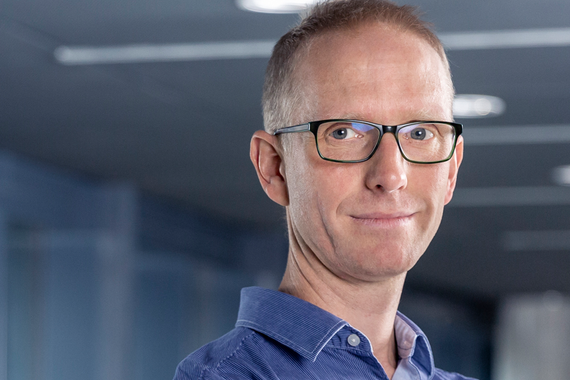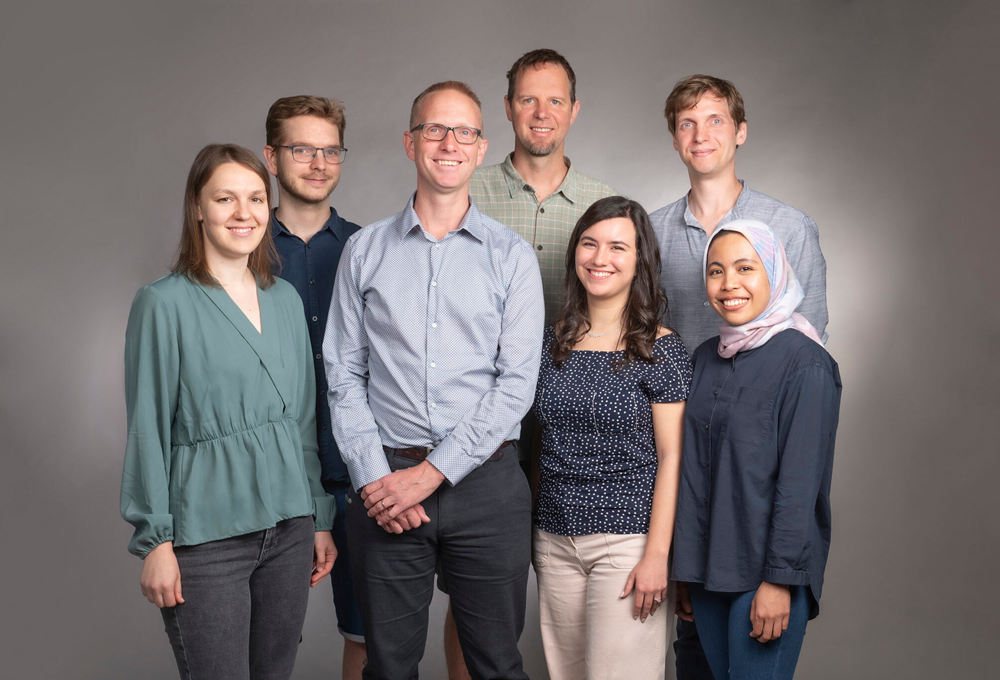-
The University
- Welcome
- Who we are
- Media & PR
- Studying
-
Research
- Profile
- Infrastructure
- Cooperations
- Services
-
Career
- Med Uni Graz as an Employer
- Educational Opportunities
- Work Environment
- Job openings
-
Diagnostics
- Patients
- Referring physicians
-
Health Topics
- Health Infrastructure
Research Team Marsh
Research Focus: Chronic respiratory and pulmonary diseases
PI: Leigh M. Marsh
Focus: Chronic lung diseases (CLD) such as chronic obstructive pulmonary disease (COPD) and pulmonary fibrosis, are often complicated by the presence of pulmonary hypertension, and represent an increasing cause of death in the aging population. Multiple immune cells contribute to disease progression, leading to both parenchymal, and vascular remodelling. Building on our data gained within the framework of the Ludwig Boltzmann Institute for Lung Vascular Research, we aim to understand the deeper dynamics of these immune cells by going beyond individual populations and focusing on comprehensive inflammatory profiles.
Our group combines computational flow cytometry, single-cell- and spatial- transcriptomic analyses, with advanced data modelling, to dissect the interaction and interdependence of immune cells and determine their contribution to disease pathogenesis. Furthermore, we seek to understand metabolic reprogramming of lung epithelial and immune cell populations using established pre-clinical models (e.g. asthma, pulmonary hypertension, pulmonary fibrosis and COPD) together with clinically relevant readouts. Together these strategies help us to identify potential disease-modifying treatment strategies for chronic lung diseases.
Networking: Our workgroup enjoys several close collaborations with other members of the Otto Loewi Research center (ORLC), clinical divisions, and the Respimmun doctoral college. These include Grazyna Kwapiszewska-Marsh (Vascular remodelling) and Slaven Crnkovic (Cellular heterogeneity) and the research groups of Eva Böhm and Akos Heinemann (Division of Pharmacology) and Stefano Angiari / Herbert Strobl (Division for Immunology). Outside the ORLC, we have long-term collaborations with Nikolaus Kneidinger / Gabor Kovacs (Division of Respiratory Medicine, Medical University of Graz) and Gregor Gorkiewicz / Gerald Höfler (Diagnostic and Research Institute of Pathology, Medical University of Graz). External collaborations include Robab Breyer-Kohansal (Ludwig Boltzmann Institute for Lung Health, Vienna), Jonas Erjefält (Lund University), Gabriele Grunig (New York University School of Medicine), Francesca Polverino (Baylor College of Medicine, Houston, USA), Bernd Schmeck (Phillips University Marburg, DE), and Anne Karina T. Perl (Cincinnati Children's Hospital, University of Cincinnati, USA).
Projects
Inflammatory profiling in chronic lung disease
- Inflammation plays an important role in mediating vascular remodelling in idiopathic form of pulmonary hypertension (PH). Where the accumulation of inflammatory cells in and around the vascular wall correlates with the degree of vascular remodelling. However, very little is known about the role of inflammation in PH associated with chronic lung disease. In this study, we will determine whether an underlying inflammatory cell profile exists in all forms of PH and how these cells regulate vascular remodelling processes.
- Duration: 2021-2025
- Funding body: FWF (KLI 844-B)
- Project partners: Paul Vesely, Bernhard Reiter, Olaya Esparta Gonzalez (Otto Loewi Research Center, Medical University of Graz), Konrad Hötzenecker (Division of Thoracic Surgery, Department of Surgery, Medical University of Vienna); Francesca Polverino (Baylor College of Medicine, Houston, USA), Nikolaus Kneidinger (Division of Respiratory Medicine, Medical University of Graz); Jonas Erjefält (Lund University); Jochen Wilhelm (Institute for Lung Health, Justus Liebig University Giessen, Germany).
Immune cell crosstalk as driver of vascular remodelling
- Cardiovascular diseases are one of the leading causes of adult mortality worldwide and associated with poor quality of life. A common theme underlying these diseases is an altered immune response. In pulmonary hypertension (PH) immune cell infiltration is associated with degree of vascular remodelling. Here we are building on our European Journal publication and investigating the role of two previously uncharacterized immune populations potentially involved in disease pathogenesis, and how they may control the transition to a chronic inflammatory environment found in PH.
- Duration: 2021-2025
- Funding body: Medical University of Graz
- Project partners: Olaya Esparta Gonzalez, Paul Vesely, Grazyna Kwapiszewska-Marsh (Otto Loewi Research Center, Medical University of Graz), Simon Phipps (QIMR Berghofer Medical Research Institute, AUS), Mirjam Kool (Erasmus MC, Pulmonary Medicine Department, NL
Compartment specific immunophenotyping in Chronic Obstructive Pulmonary Disease
- Chronic obstructive pulmonary disease (COPD) is a highly heterogenous disease with several know phenotypes, these can be distinguished by the pathology, degree of inflammation, or response to treatment. The presence of pulmonary hypertension (PH) in patients with COPD is associated with even worse survival. However, there is only limited knowledge how the compartment specific inflammatory profile overlaps in COPD and contributes to pathogenic remodelling. This project investigates whether the inflammatory cell profile exhibits a compartmental specific fingerprint and discriminates between different COPD phenotypes.
- Duration: 2021-2025
- Funding body: FWF DOC 129, RespImmun
- Project partners: Ayu Hutami Syarif, Bernhard Reiter, Slaven Crnkovic (Otto Loewi Research Center, Medical University of Graz), Alexander Avian (Institute for Medical Informatics, Statistics and Documentation, Medical University of Graz), Konrad Hötzenecker (Division of Thoracic Surgery, Department of Surgery, Medical University of Vienna); Francesca Polverino (Baylor College of Medicine, Houston, USA)
ANEMONE The ANswer within the microEnvironment: Malignant pleural mesothelioma resistance to Old and NEw drugs
- Pleural mesothelioma (PM) is a rare malignant intrathoracic cancer linked to asbestos exposure. This project aims to analyze the tumour microenvironment through genetic, radiologic, and immunologic methods to uncover mechanisms supporting tumour survival and immune evasion. It involves 360 patients from five centres and uses advanced techniques like radiomics, AI, and sequencing. Via this interdisciplinary approach we will identify key pathways and crucial markers in the tumour microenvironment, which potentially will improve treatment, patient outcomes, and healthcare efficiency.
- Duration: 2022-2026
- Funding body: FWF I6102




